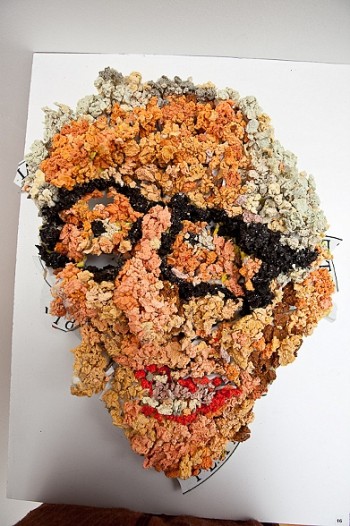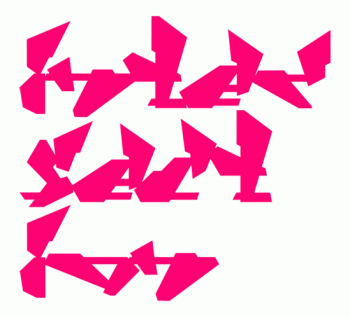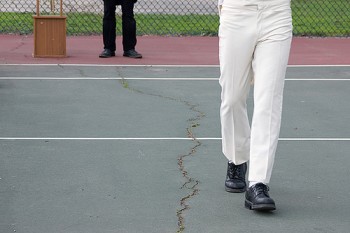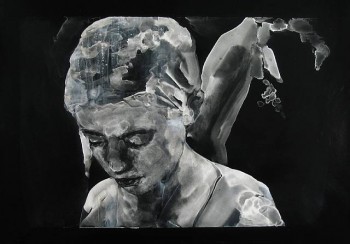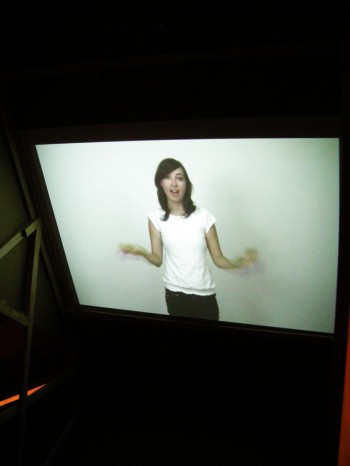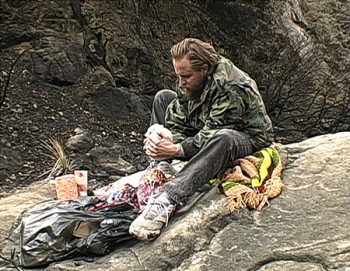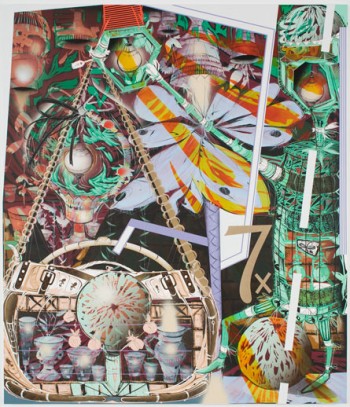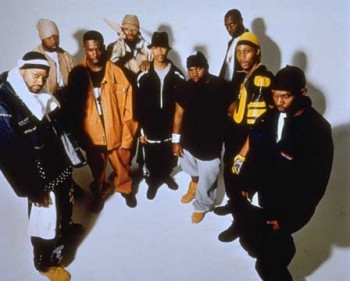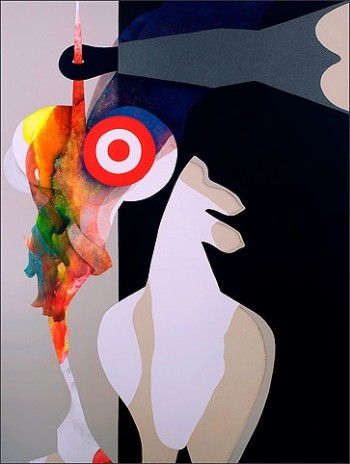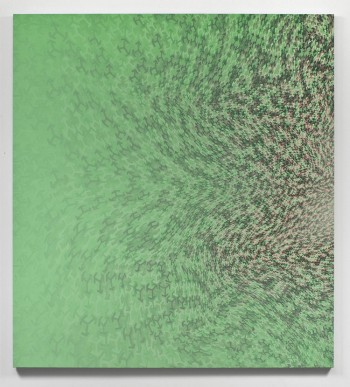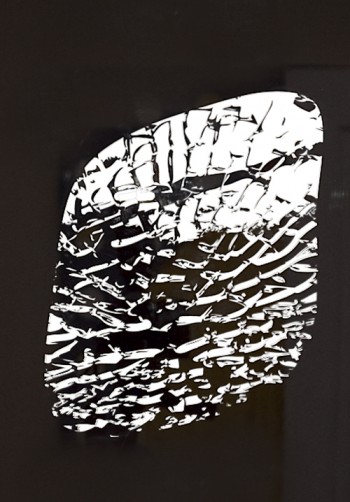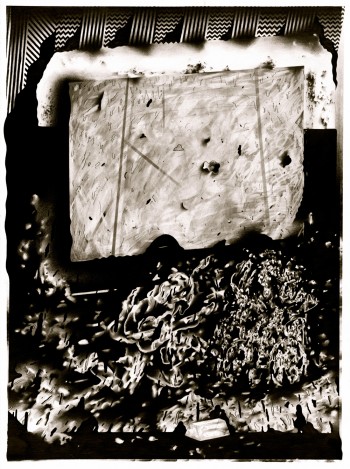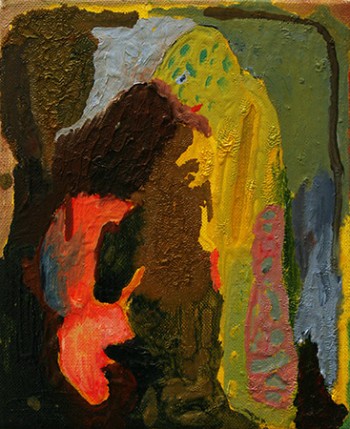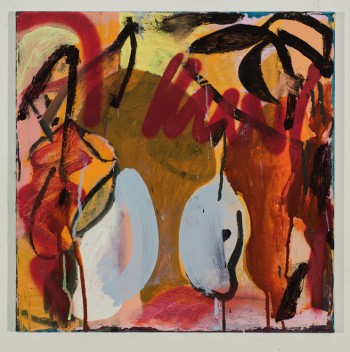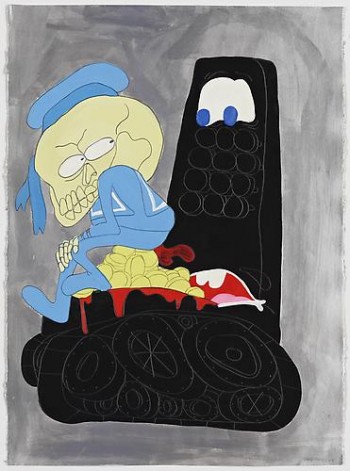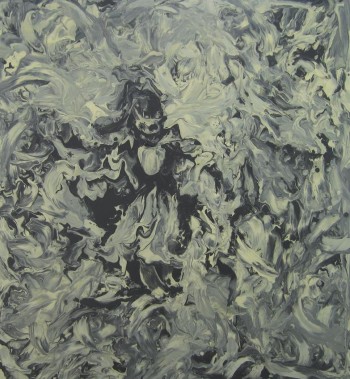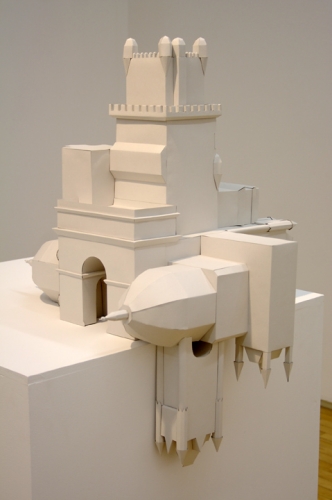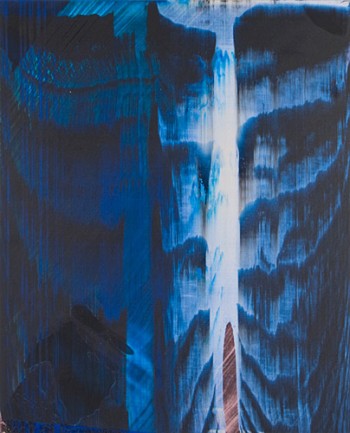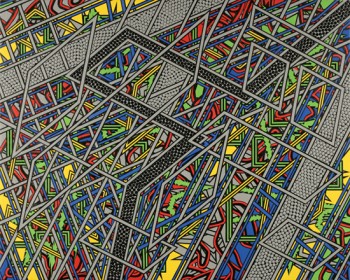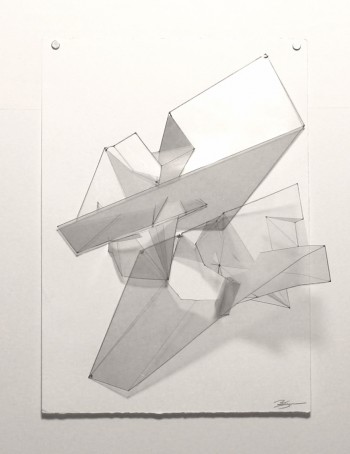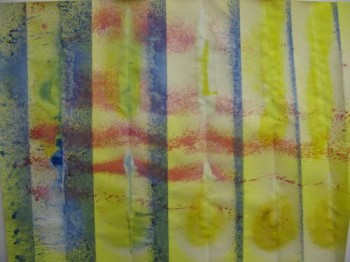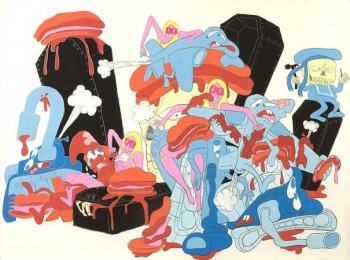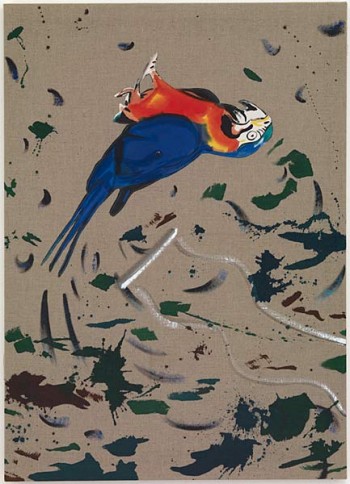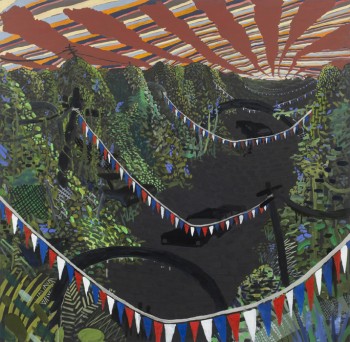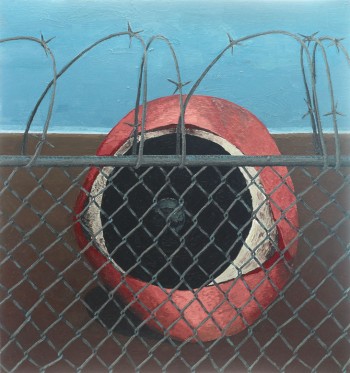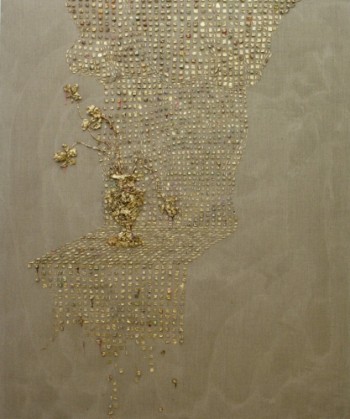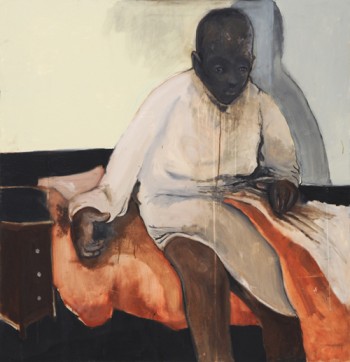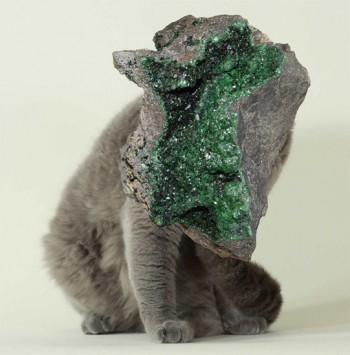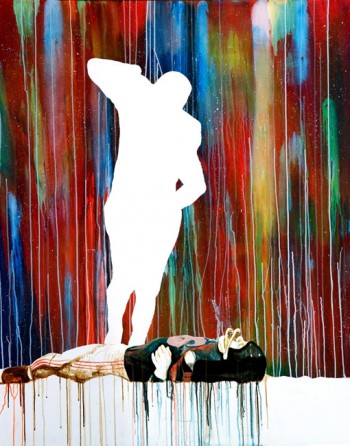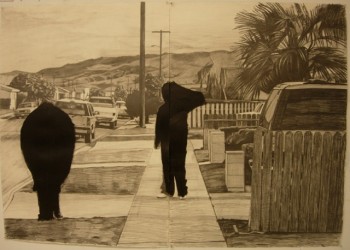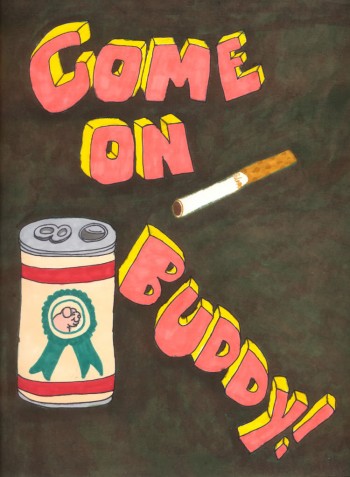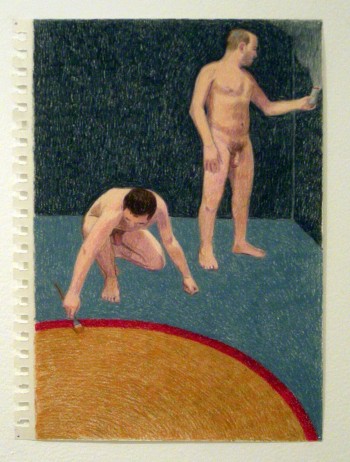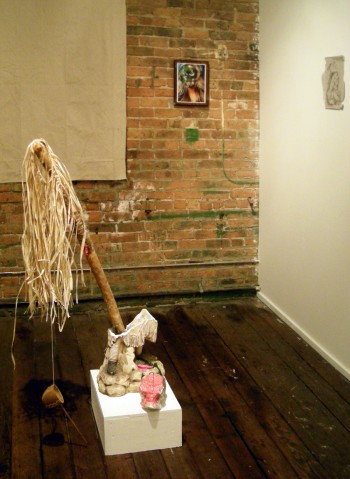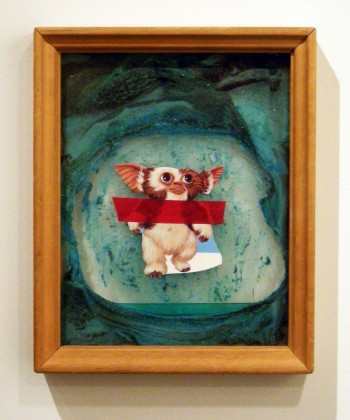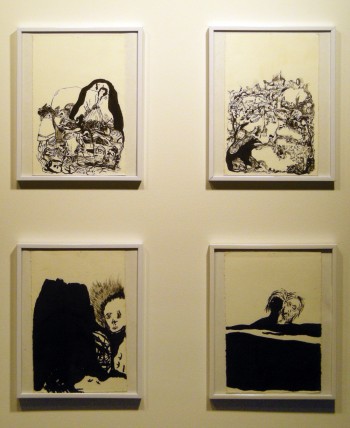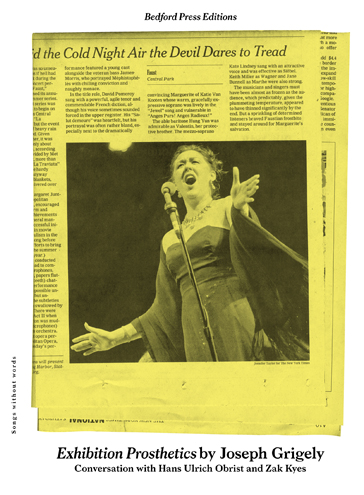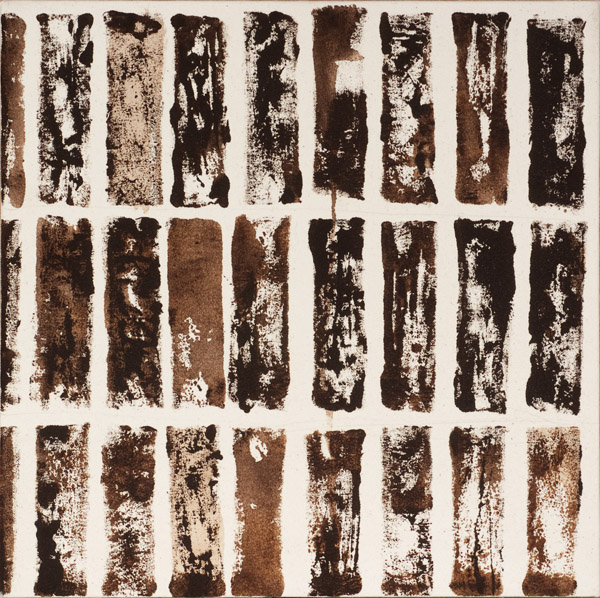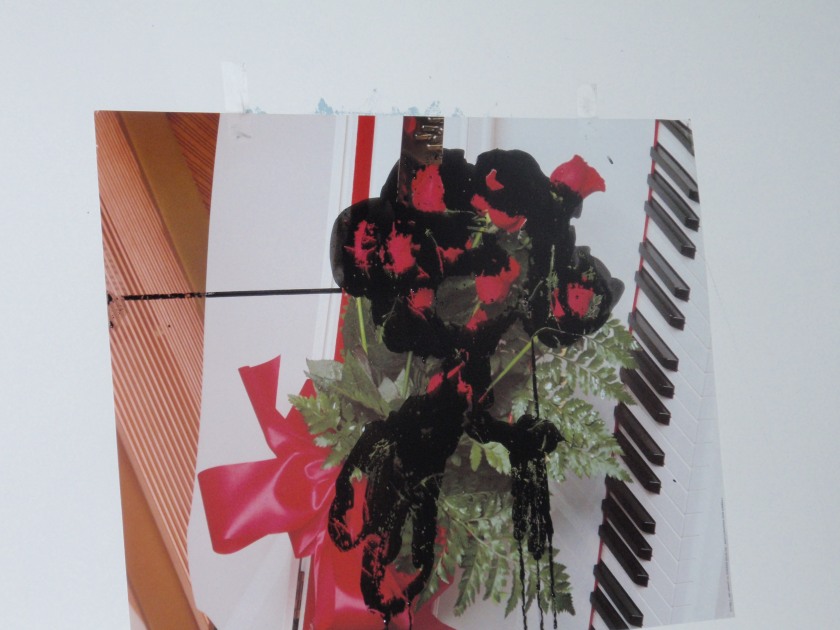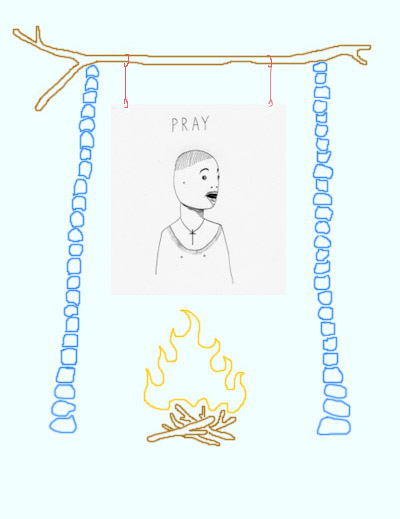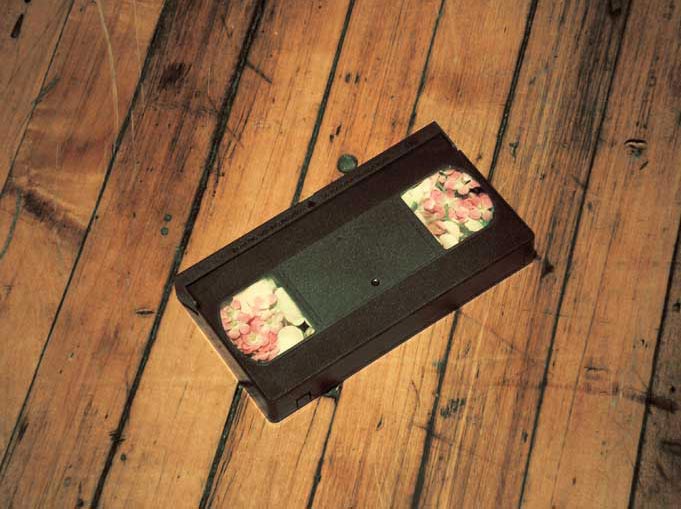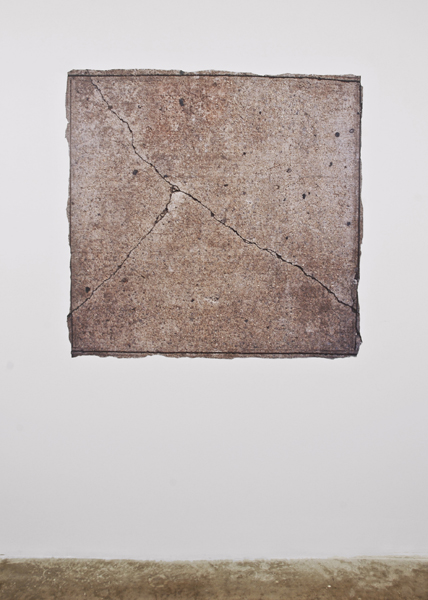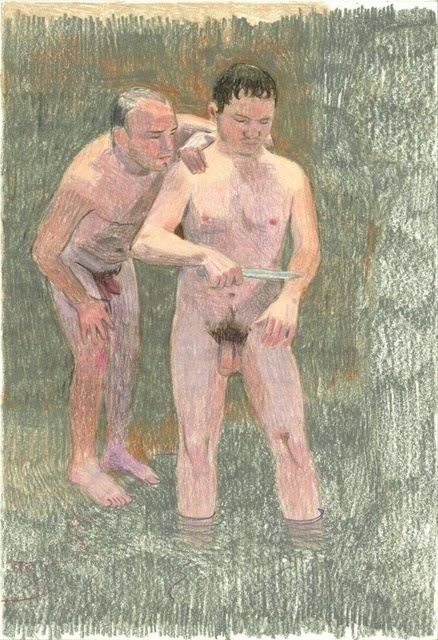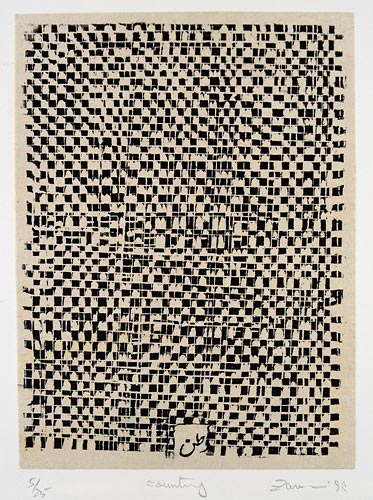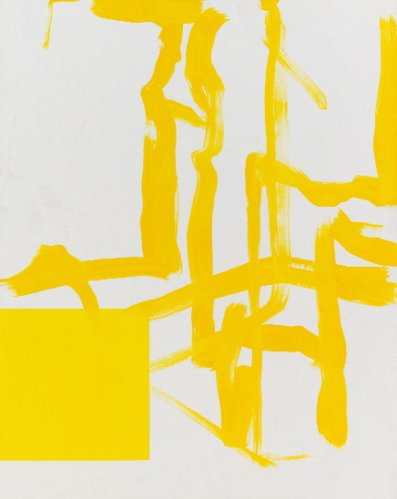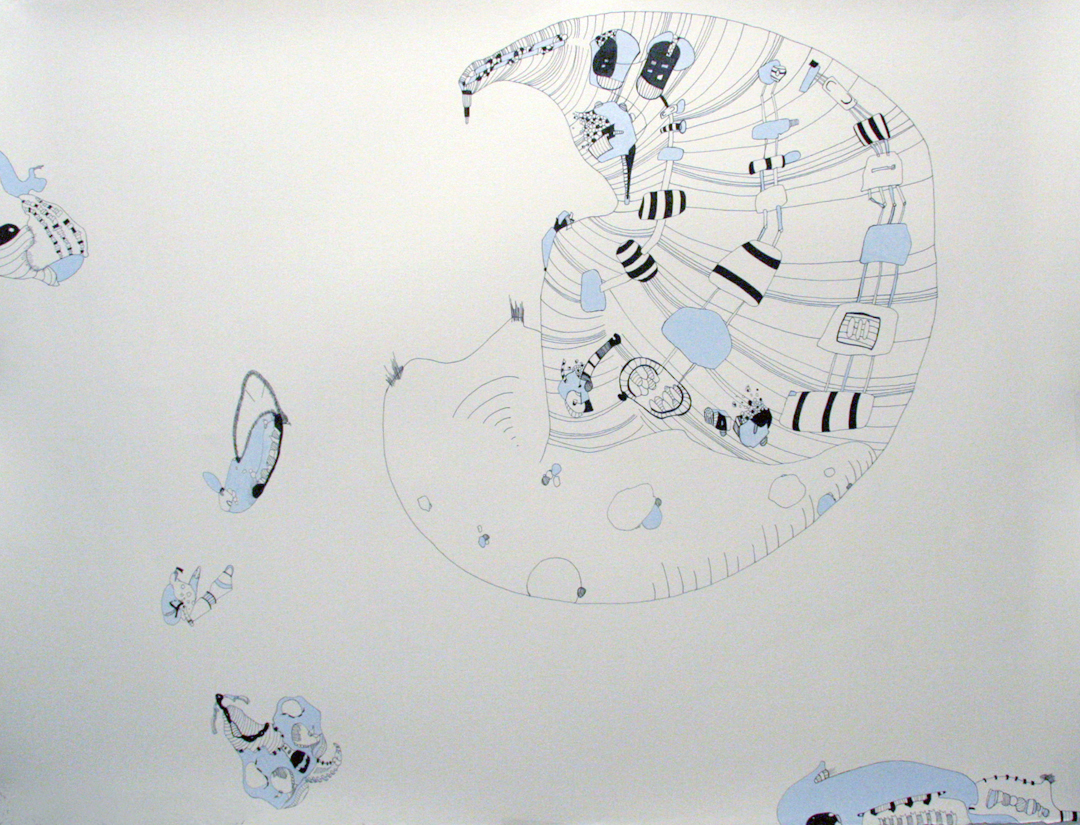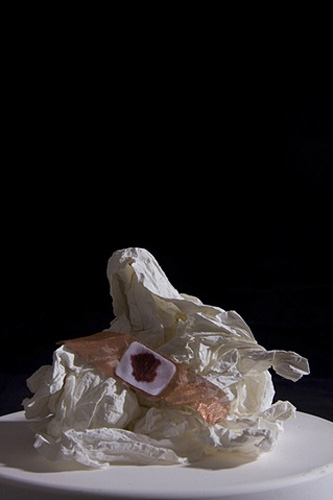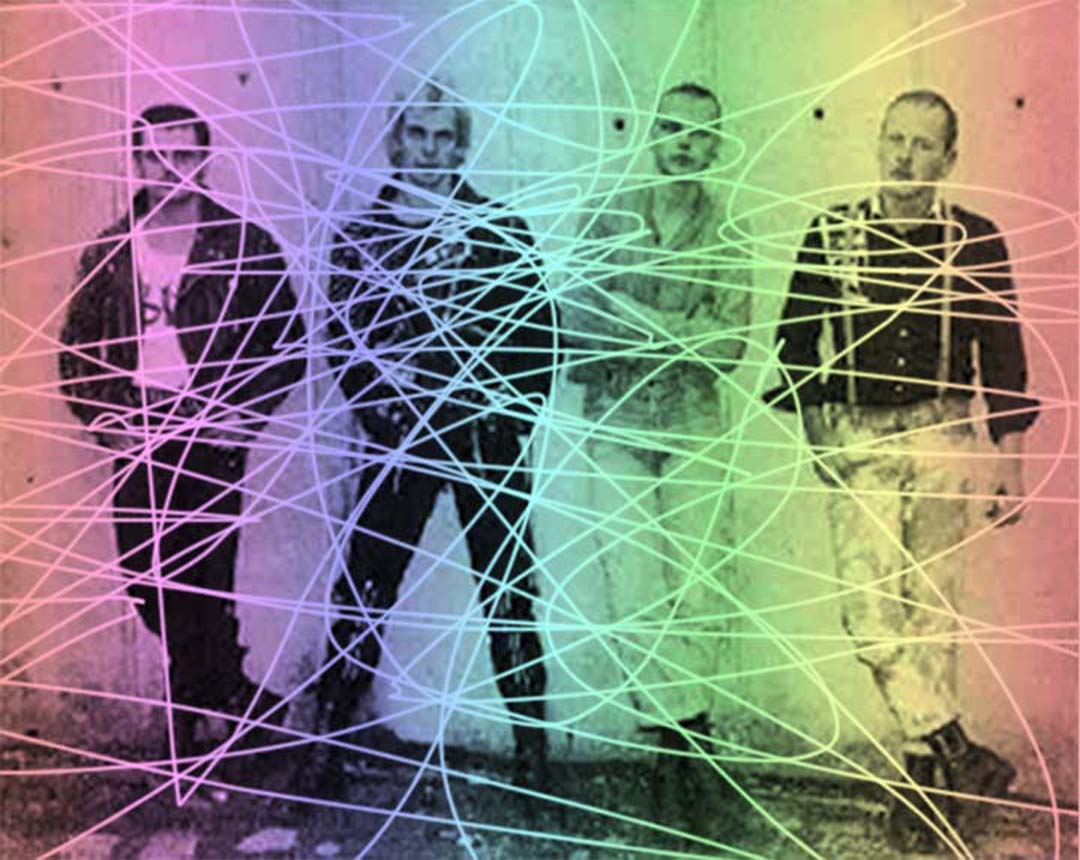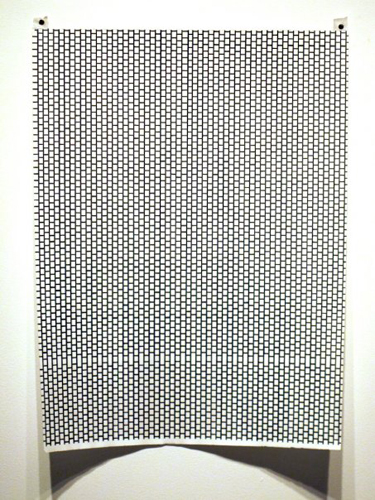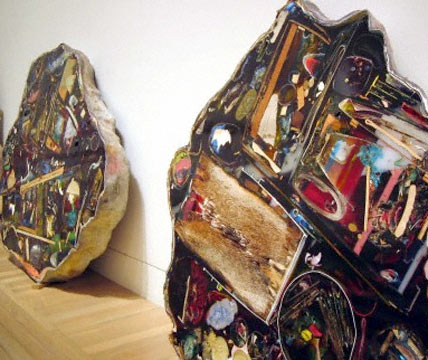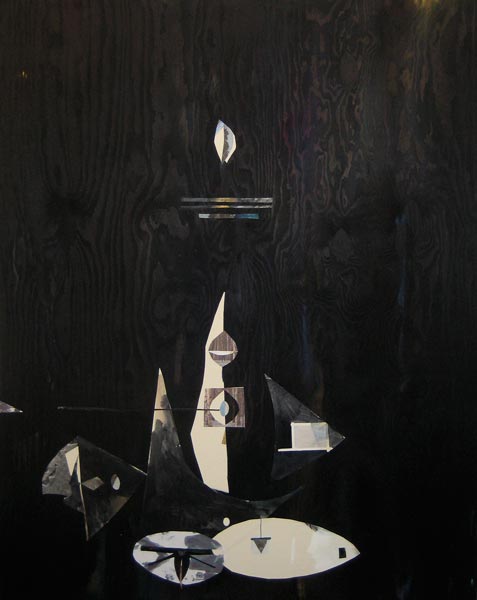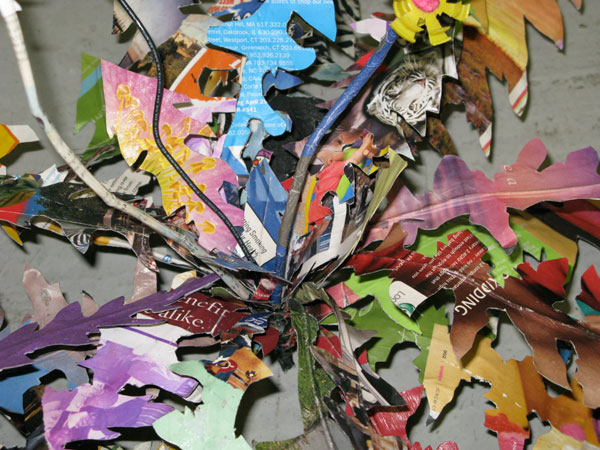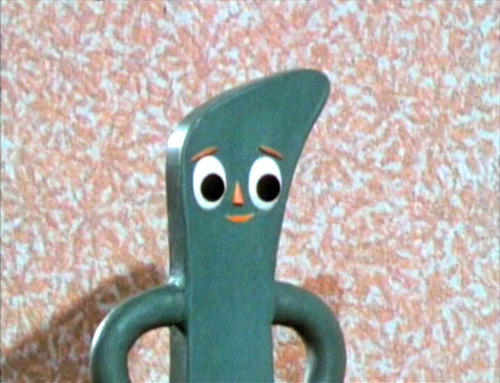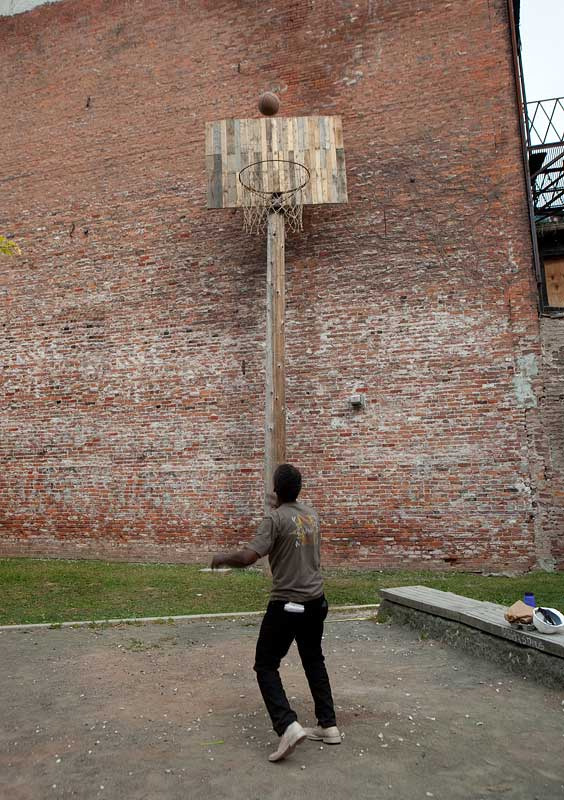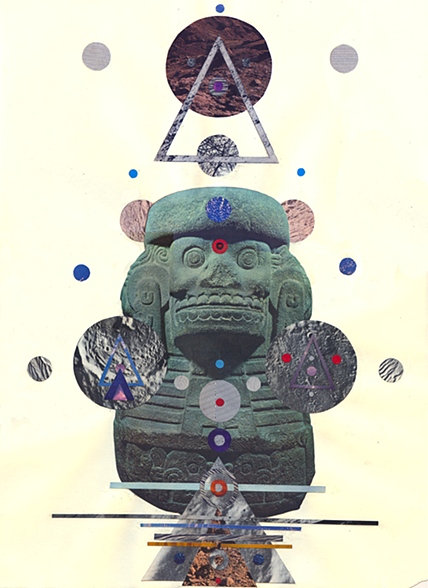Question: When is an artist’s book not an artist’s book?
Answer: When it isn’t a book and is not really by an artist.
I submit, for your consideration, the most recent record by The Red Krayola with Art & Language, Five American Portraits. Art & Language have been complicating the structures and forms by which we understand judgments since the sixties. They were classic conceptual art before conceptual art had any classics. Indexicality is often the name of their game. In the heyday there were British and American branches of the Art & Language brand (even Hurt Locker director Kathryn Bigelow put in her time). In recent years the group was solidly settled and grooving along with the classic line-up of Michael Baldwin and Mel Ramsden with Charles Harrison, until Harrison’s death last year. (For you locals, check out the upcoming Art & Language exhibition at Rhona Hoffman Gallery. Oh, and the record comes to us thanks to the good folks at Drag City.)

The Red Krayola with Art & Language, Five American Portraits
Red Krayola is a straight-up rock band, England by way of Germany and Texas under the guidance of one Mayo Thompson (art nerds please note that he worked for a time as Robert Rauschenberg’s assistant). They were psychedelic rock before rock took psychedelics (or contemporaneously at the least). Confusing codes is the name of their game. Truth be told, I respect The Red Krayola more than I always love the music. Still, you cannot disrespect or pass over a band led by a man who said: “I always try to be timely. But I insist on asking my own stupid questions rather than the ones that are on everybody else’s mind. As I said, I was under the impression that that was what rock ‘n’ roll was all about.”
Since the seventies, The Red Krayola and Art & Language have collaborated sporadically, yet fruitfully. Purportedly the collaboration began after Thompson gave Art & Language members a copy of a record. The story has it Art & Language let him know they thought the music was good but the lyrics terrible, to which Thompson responded something to the tune of, if you can do better I’ll sing them. The rest is barely noticed or understood history.
This most recent record is the doozy. I might not like it as much if I had not seen Mayo and his mates deliver a crack performance of the material back in November, but that backstory doesn’t help you. What is this record? Five musical portraits of some idiomatic Americans of the past half-century: Wile E. Coyote, George W. Bush, Jimmy Carter, John Wayne, and Ad Reinhardt. So what’s the catch? Each portrait is developed along programmatic music to set the tone of the subject, music that seems vaguely familiar… overtones, say, “Roadrunner” by Muddy Waters, or maybe “The Eyes of Texas,” “Georgia On My Mind,” “Dixie’s Land,” and “Piano Sonata No. 6,” you know, the one by Mozart. The stylings are a bit all over the place.
It’s the lyrics that get you. They don’t vary much song to song; at least in structure. Before you protest that nothing, absolutely nothing, besides big feet and a desire to kill animals smarter than them connects Wile E. Coyote and George W. Bush; it is the formal descriptions that remain the same–not the finished portrait. The image each song will call to mind, now that won’t be the same at all. Here’s some sample lyrics:
A light patch on the left of the throat,
A light patch to the right of the mouth,
A light patch on the left of the lower lip,
The left eyebrow,
A shadow beneath the left nostril,
A major part of the hair
Of President Jimmy Carter
See, you can take it from there. The lyrics are somewhere between concrete poetry, lame joke, strict factual descriptive and measure of difference. They are as all over the place, like the music, except the everywhere the lyrics are allover is someone’s face. These are old-fashioned representational portraits. No metaphor no how. The sharpness is all in the delivery, and there is no better straight man in this business than Mayo Thompson, and his timing is infallible, even when off. This is pop minimalism, conceptual classic rock, political shuffle, and imagist critique of the highest order.
This record will either drive you to the back of absurdist pleasure or drive you to drink, either way you won’t be the same when the needle reaches that inner groove. You might even find yourself with a desire to draft up some iconic representations, unconsciously tracing the line from your temple to the corner of your mouth, from the bottom of your cheek to the left side of your…well… you know. Draw your own connections.
(Anthony Elms)
